People
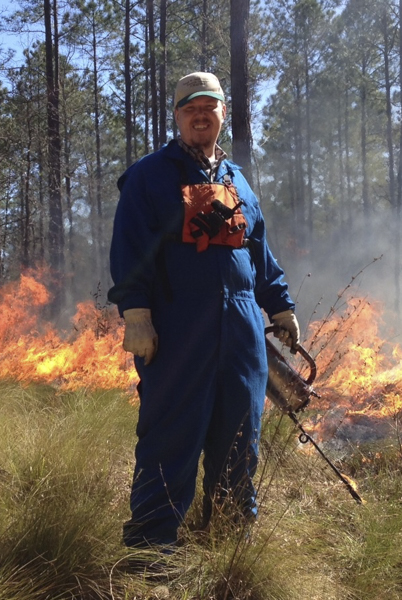
Steven T. Brantley, Ph.D.
Associate Scientist
Steven received his B.S. and M.S. in Biology and his Ph.D. (2009) in Integrative Life Sciences, all from Virginia Commonwealth University. His research at VCU focused on the consequences of shrub expansion on the Virginia barrier islands and was supported by the Virginia Coast Reserve LTER program. He subsequently worked as a post-doc at the U.S. Forest Service Coweeta Hydrologic Lab where he studied the effects of forest species composition on forest water use, the hydrologic effects of the hemlock woolly adelgid infestation, and strategies to conserve surviving hemlock trees. Steven has been at Ichauway since 2014 where he has engaged in diverse interdisciplinary work related to interactions between land and water. When he’s not doing science, Steven enjoys spending time with family, cooking, and watching football at all levels.
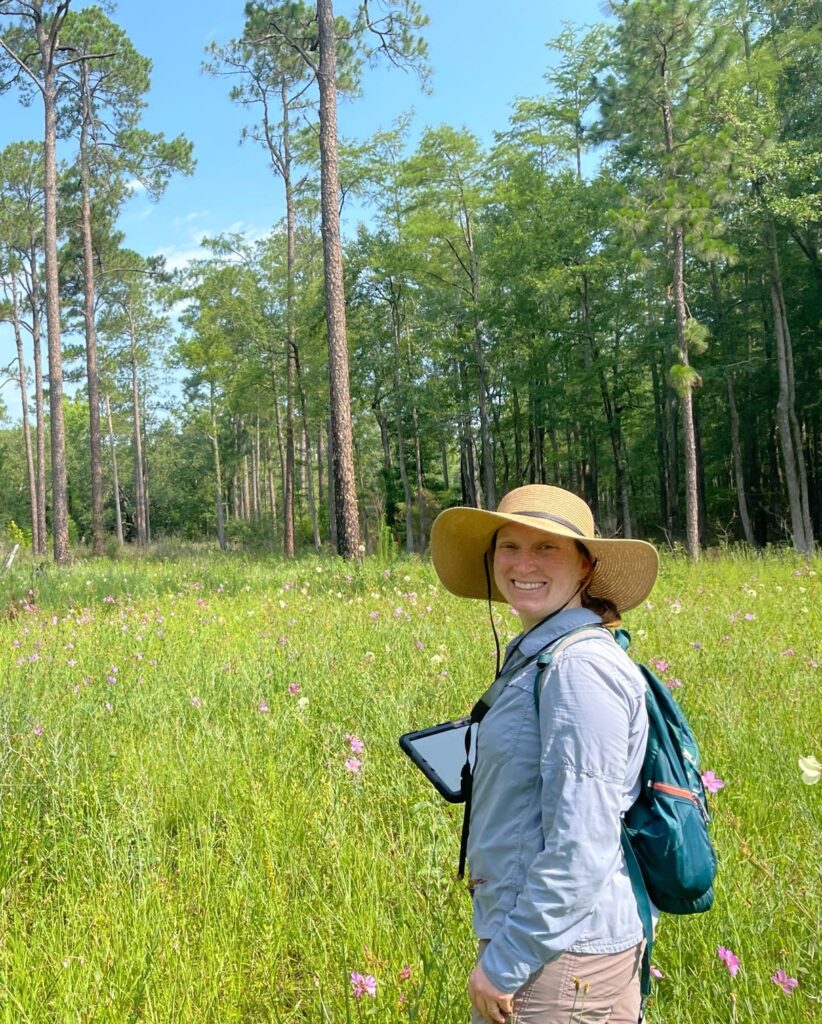
Emma York Marzolf, M.S.
Research Associate
Emma received her B.S. in Biology from Piedmont College and her M.S. in Environmental Studies from the University of North Carolina Wilmington. During her master’s she conducted research examining the effects of shoreline erosion on an important breeding area for wading birds in the Lower Cape Fear River. Her career focus thus far has been in plant ecology and conservation, specifically ground cover restoration and rare plant conservation. She has worked in different capacities with GADNR, an earlier stint at the Jones Center (2015), and with the North Carolina Botanical Garden. She is originally from the mountains of Georgia and has spent much of her time working in and exploring the many unique and special ecosystems of the southeast, but the longleaf pine ecosystem continues to be her favorite. She looks forward to expanding her knowledge and skill set through the lens of ecohydrology. When not in the lab, she enjoys being at home tending to and expanding her native plant garden.
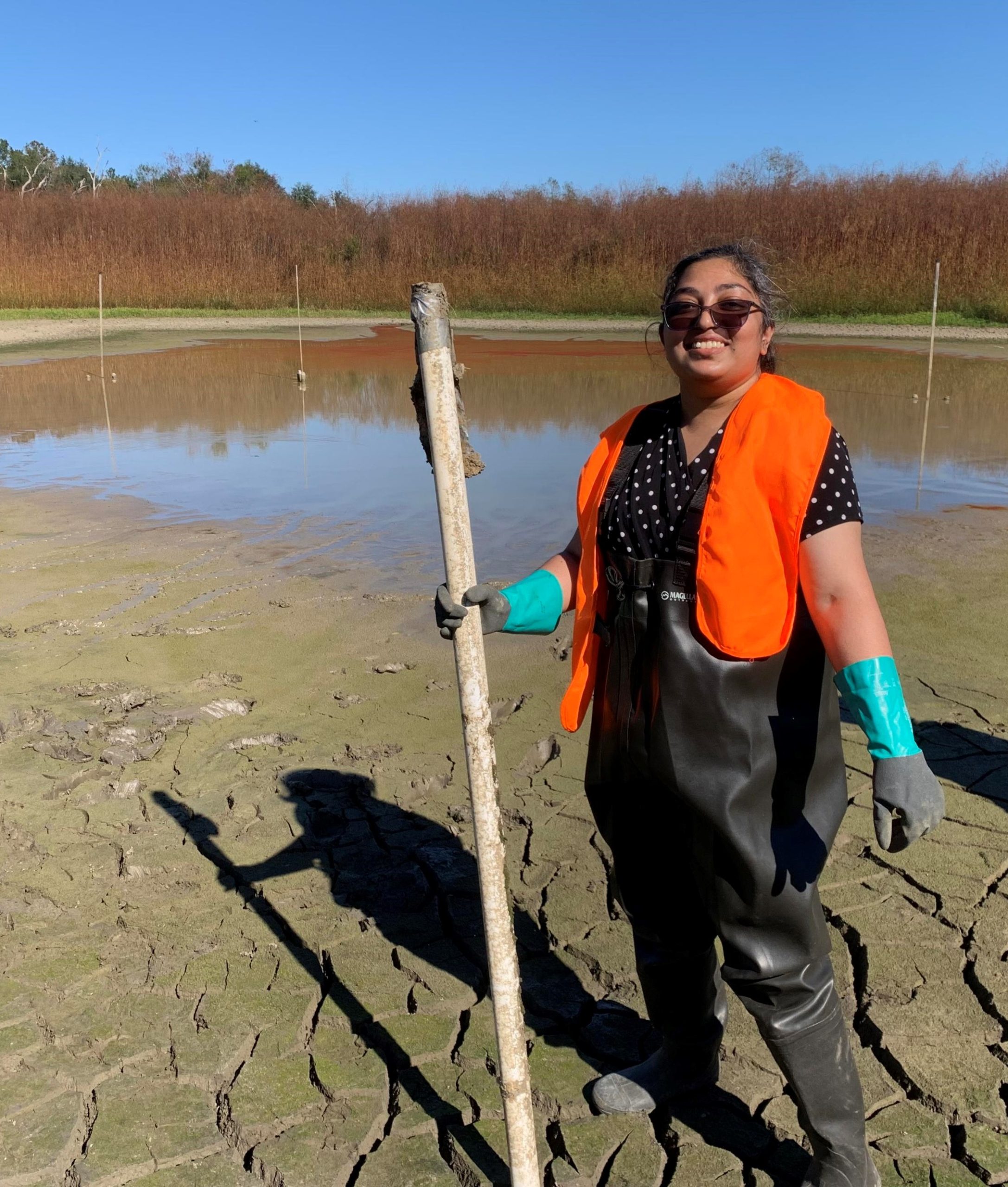
Suranjana Chatterjee, M.S.
Ph.D. student, Department of Civil and Environmental Engineering, Auburn University
Suranjana received her B.S. in Electrical and Electronics Engineering from Bangladesh University of Engineering & Technology (BUET) and received her M.S. in Environmental Engineering from Lamar University, TX. Suranjana is now pursuing a PhD in Civil and Environmental Engineering at Auburn University. CO-advised by Dr. Frances O’Donnell, she is currently using hydrologic modeling and analysis to determine the long-term trajectory of nutrient deposition and biogeochemical function in geographically isolated wetlands (GIWs), which are widespread in many agricultural regions. Her research is part of a larger collaborative effort that will help to mitigate the effects of non-point source pollution from agriculture on water quality.
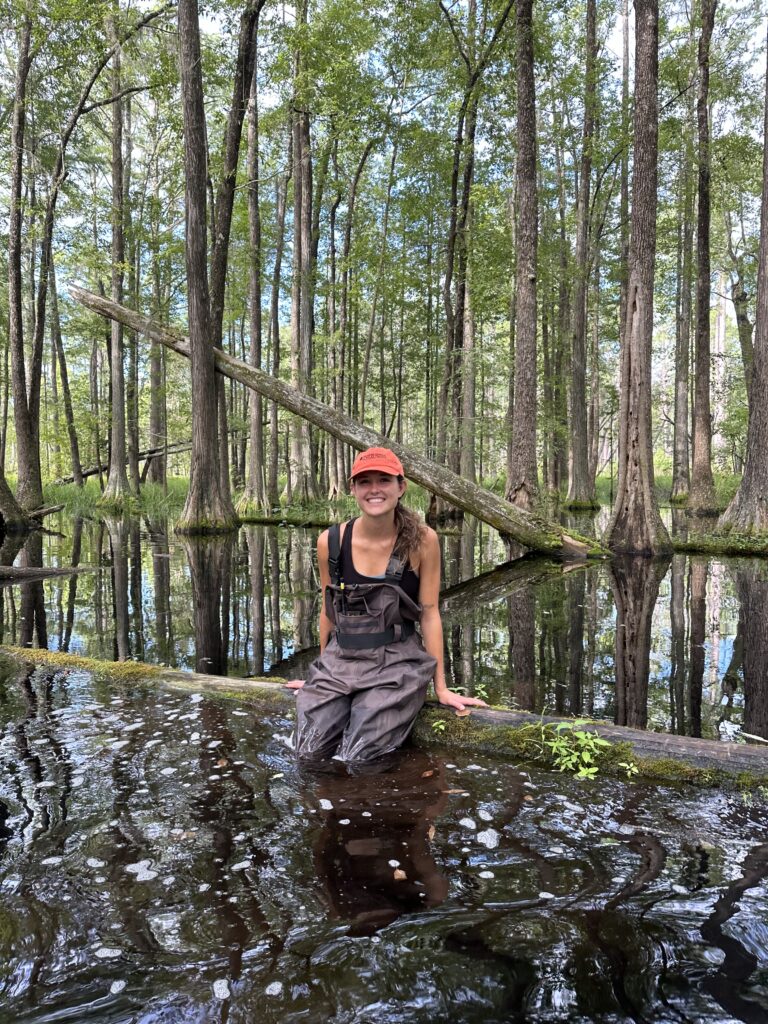
Katy Perkins, B.S.
M.S. student, Department of Civil and Environmental Engineering, Auburn University
Katy received her B.S. in Chemical and Biomolecular Engineering with a minor in Earth and Atmospheric Sciences from the Georgia Institute of Technology. Co-advised by Dr. Frances O’Donnell, Katy’s thesis focuses on the links between the hydrological function of geographically isolated wetlands and surrounding landscape variables. Specifically, her work addresses how longleaf pine cover and restoration affects wetland hydrology using a watershed modeling framework. Katy’s academic interests include restoration ecology, biogeochemistry, and remote sensing. When she is not wading in a wetland, Katy can be found hiking, reading, and listening to podcasts.
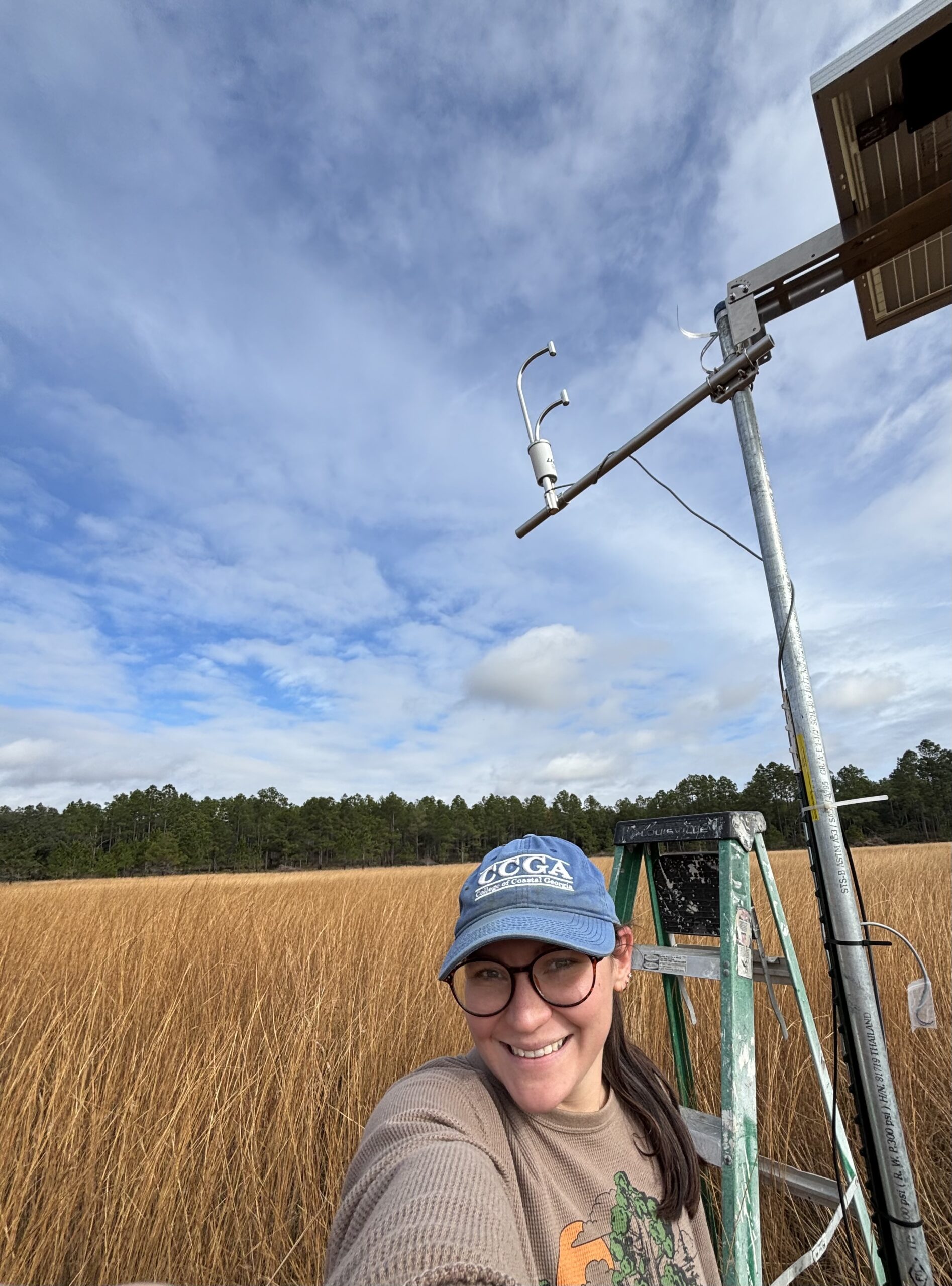
Carlie Blackburn, B.S.
M.S. student, Department of Civil and Environmental Engineering, Auburn University
Carlie received her B.S. in Coastal Ecology and Environmental Sciences from The College of Coastal Georgia. As an undergraduate, Carlie researched the effects of surrounding vegetation on water quality of residential ponds. After graduating, Carlie studied the restoration of maritime grasslands, including the reestablishment of culturally important sweetgrass populations, along the coast of Jekyll Island, GA. During her time on the coast, she also participated in eastern diamondback rattlesnake tracking, phytoplankton monitoring, and alligator population surveys. Co-advised by Dr. Frances O’Donnell, her graduate thesis project is focused on quantifying productivity, evapotranspiration, and water use efficiency of geographically isolated wetlands in southwestern Georgia. In her spare time, Carlie enjoys exploring the outdoors, reading, and watching Star Wars.
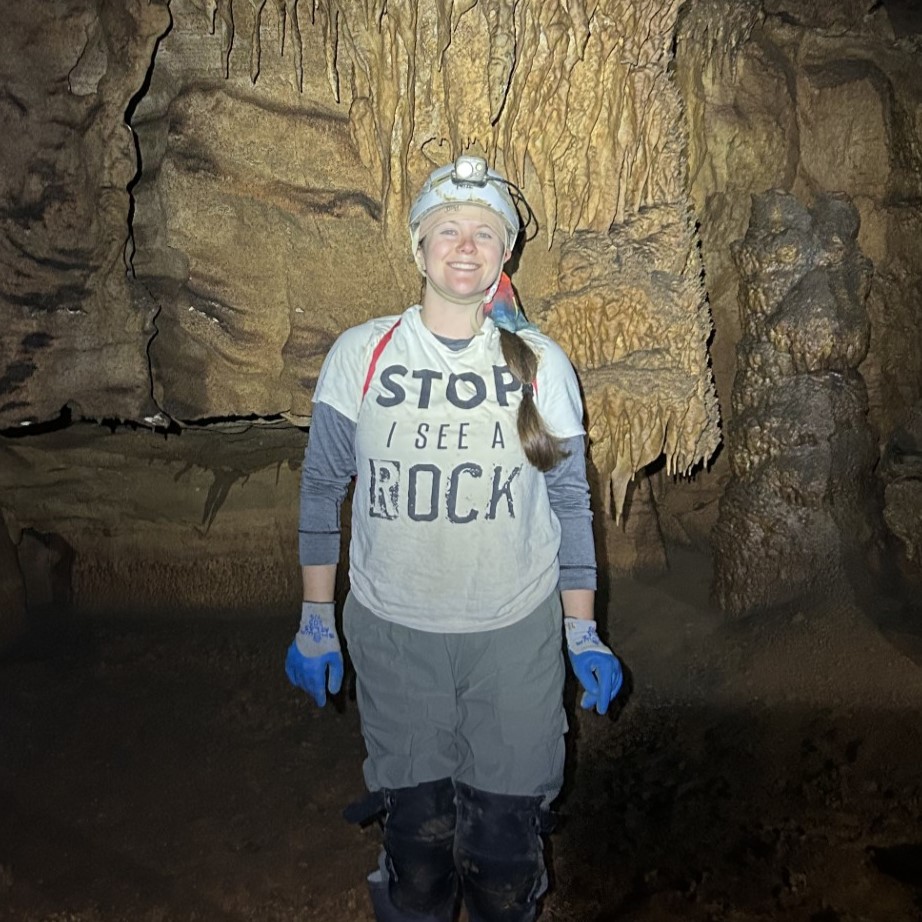
Jessica Shores, B.S.
Seasonal Technician
Jessica is a graduate of Valdosta State University with a B.S. in Environmental Geosciences, concentration in Geology and minoring in Geography. After graduating she took on various seasonal roles focused on the geology, biology, and hydrology of caves and karst systems. Jessica has also worked as a Hydrologic Technician, where she conducted water quality assessments and discharge measurements at rivers and springs. Outside of work, she enjoys kayaking, snorkeling, and caving.
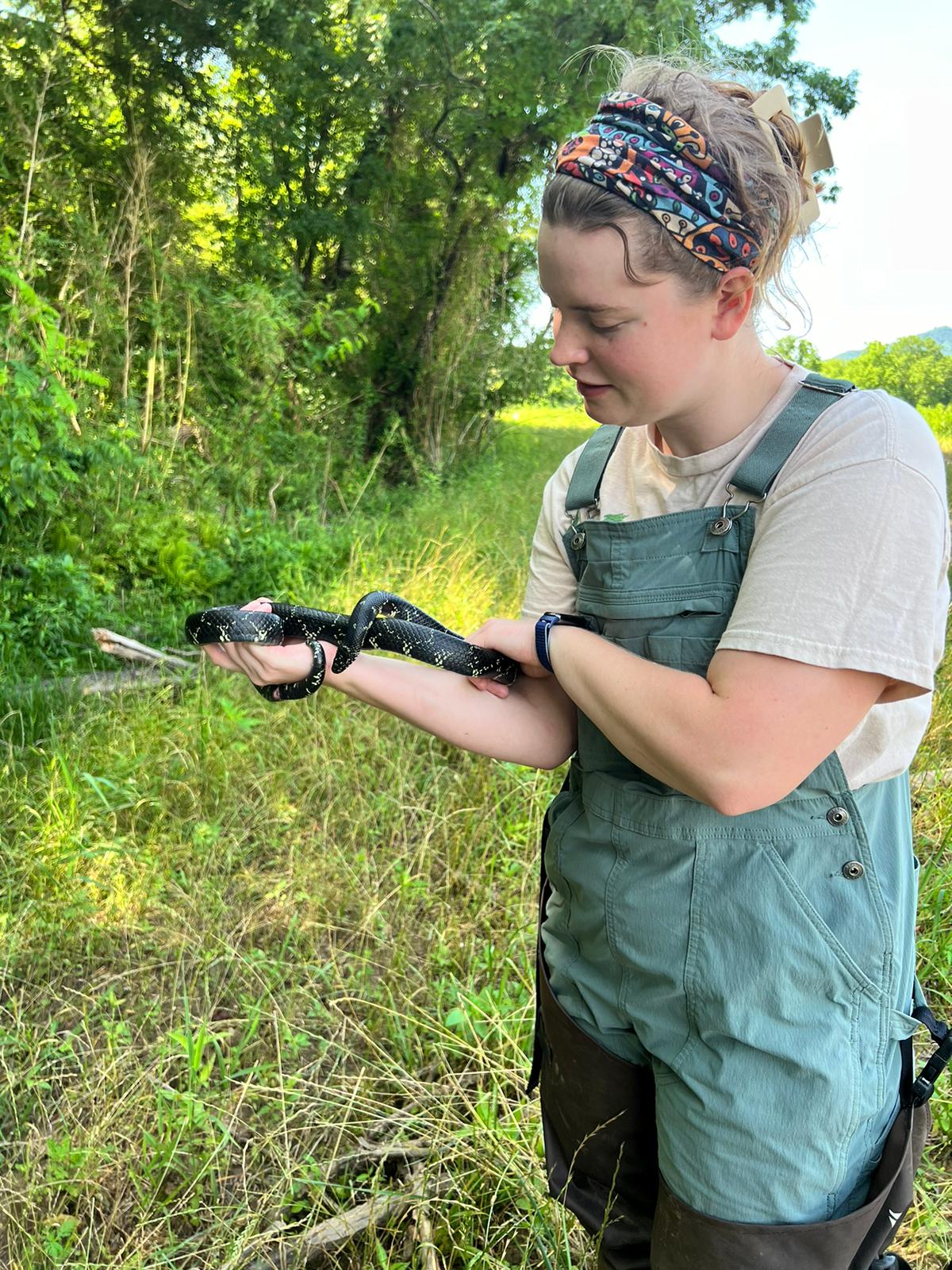
Georgeanna Randall, B.S.
Seasonal Technician
Georgeanna earned her BS in Environmental Science and Biology with a concentration in Ecology and Evolution and a minor in Mathematics from Western Carolina University. For her Capstone Project she investigated sources of microplastics in the Cullasaja River Watershed in Western North Carolina and the effect storms have on microplastic loads and concentrations. Georgeanna continued researching microplastics as a student researcher in Dr. Jerry Miller’s lab at WCU and Highlands Biological Station, looking at temporal and spatial variations in microplastic concentrations in small headwater basins in the Southern Blue Ridge Mountains in North Carolina.
Lab Alumni
Graduate students
Haley Ritger
Ph.D., 2023
Haley Ritger, Ph.D., Warnell School of Forestry and Natural Resources, University of Georgia (2023). Dissertation: Forest health implications of restoring longleaf pine (Pinus palustris Mill.) ecosystems with prescribed fire.
Joe Honings
Ph.D., 2022
Joe Honings, Ph.D., Department of Geology and Geophysics, Louisiana State University (2022). Dissertation: Hydrogeologic investigation of a covered karst region.
Phoebe Judge
M.S., 2022
Phoebe Judge, M.S., Odum School of Ecology, University of Georgia (2022). Thesis: The impacts of hydraulic redistribution on the physiology and growth of understory plants in longleaf pine (Pinus palustris) sandhills.
Benju Baniya
M.S., 2021
Benju Baniya, M.S., School of Forest, Fisheries, and Geomatics Sciences, University of Florida (2021). Thesis: Re-assembly of the longleaf pine ecosystem: effects of groundcover seeding on understory characteristics, fire behavior, and soil properties.
Gavin Kenney
M.S., 2021
Gavin Kenney, M.S., Department of Biological Science, University of Alabama (2021). Thesis: The effects of Hurricane Michael on the structure and function of longleaf pine woodlands.
Coleman Barrie
M.S., 2019
Coleman Barrie, M.C.E., UGA College of Engineering (2019). Thesis: Groundwater flow on a karstic landscape in southwest Georgia.
Jill Qi
Postdoctoral Associate, 2017-2019
Jill Qi, Post-doc (2017-2019). Jill worked with our lab and the Jones Center Aquatic Biology Lab to model the effects of agricultural water conservation and forest restoration on streamflow in Ichawaynochaway Creek using the SWAT model.
Michael Belovitch
M.S., 2018
Michael Belovitch, M.S., UGA Warnell School of Forest Resources (2018). Thesis: Hydraulic redistribution: roots to ecosystems.
Research Staff
O. Stribling Stuber, Research Associate (2015 - 2024)
Senior Technicians
Sophie Roberts (2023 - 2024)
Dakota Holder (2022 - 2023)
Alex Gordon (2022)
Joshua Scherrer (2021-2022)
Robert Ritger (2016 - 2021)
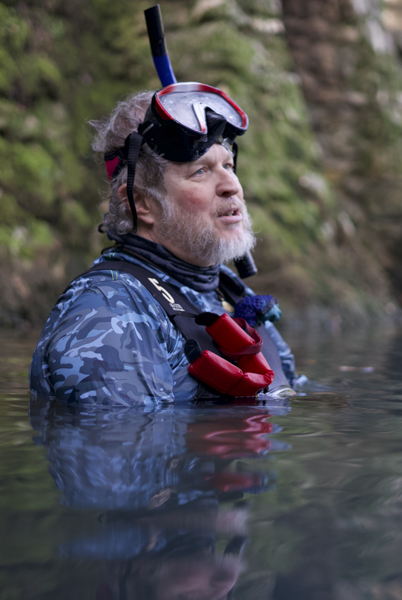
Stephen W. Golladay, Ph.D.
Scientist
Dr. Golladay’s interests include the ecology of streams and wetlands, the impact of human land use on water quality and aquatic invertebrates, and the impact of variation in hydrology on ecological processes and aquatic communities Recently, he has developed an interest in the ecology and conservation of rare and endangered freshwater mussel species.
Dr. Golladay has served as a technical advisor to the Sand County Foundation, Georgia EPD, DNR and Water Management districts in Florida. He has developed training activities for resource professionals in partnership with the U.S. Fish and Wildlife Service. Dr. Golladay also has assisted in the development of programs to enhance the
natural resource awareness of regional educators in cooperation with regional Georgia Youth Science and Technology.